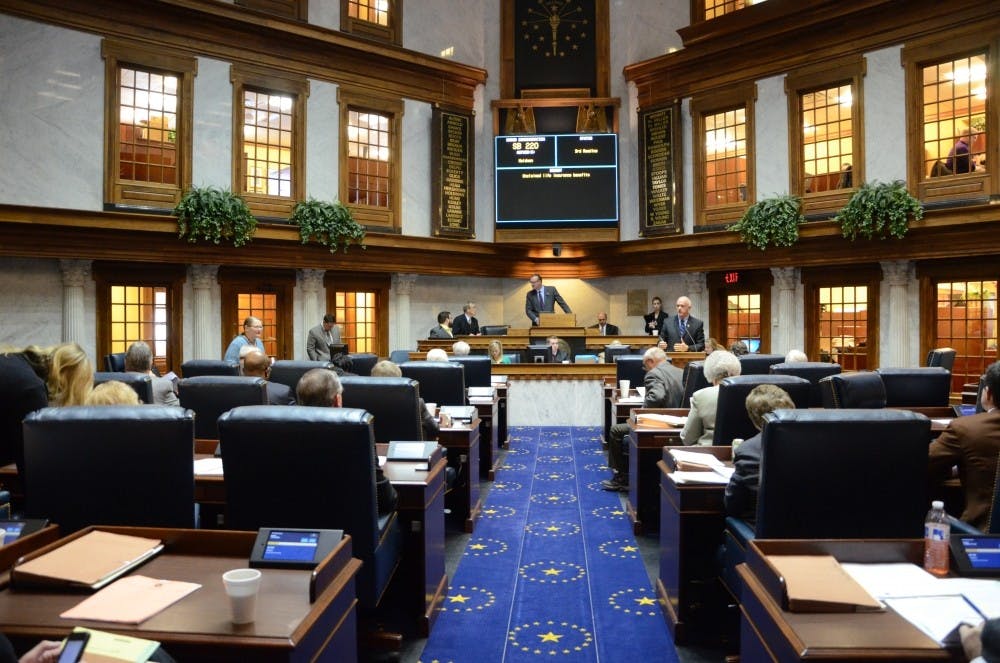Republicans won the U.S. House of Representatives and the U.S. Senate in this year's election.
With a 239-192 majority in the House and a 51-48 majority in the Senate, Republicans have a gridlock on Congress and the presidency.
In the Indiana General Assembly, Republicans have an advantage, as well.
The Indiana House has a 70-30 Republican majority, while the Indiana Senate has a 41-9 majority.
The results, said political science professor Chad Kinsella, were contrary to what was anticipated.
“Unlike what many people thought was going to happen, they won all of these key offices," Kinsella said. "I think it defied expectations. So it puts Indiana firmly in the hands of the Republican party."
Up until 10 p.m. Nov. 8 — Election Night — Kinsella said the general thought was Republicans would only earn candidacy in the Attorney General's office.
"Even myself, I thought [the Republicans] were gonna lose the governor's race, superintendent’s race and many of the others down the ballot, but they won all of them," Kinsella said.
While Indiana residents may have hesitation about this Republican "supermajority," political science professor Sean Hildebrand said as a state, Indiana witnessed what "a more conservative path" can do to policies.
"Sure, they can take things in a more conservative direction if they want to, but we've seen them go socially conservative, what two to three years ago with the Religious Freedom [Restoration Act] and we saw what happened with that," Hildebrand said.
While these changes don't take place until January, Erin Reece, director of communications and technology at the Indiana House Republican Caucus, reported the results of the election and what Republican State Representative Brian Bosma said in a press release Nov. 9.
"This session, we will keep our focus on continued fiscal integrity, a long-term infrastructure funding plan and teacher and student focused education opportunities," Bosma said.
Future legislation isn't definite at this point. However, based off of survey results, many points for legislation are reoccurring topics that citizens are interested in.
"We've seen at least in the Hoosier survey that we do here in the Bowen Center, that the main issues somewhat mirror," Hildebrand said. "What people are definitely interested in, they're interested in roads, they're interested in jobs, economic development and they're interested in better schools."
As for what this means for students, Hildebrand said education is something both parties value.
"Education finance for the kids is something, Republican or Democratic, they just might have slightly different definitions on what that should be, but they usually like to do it," Hildebrand said.





